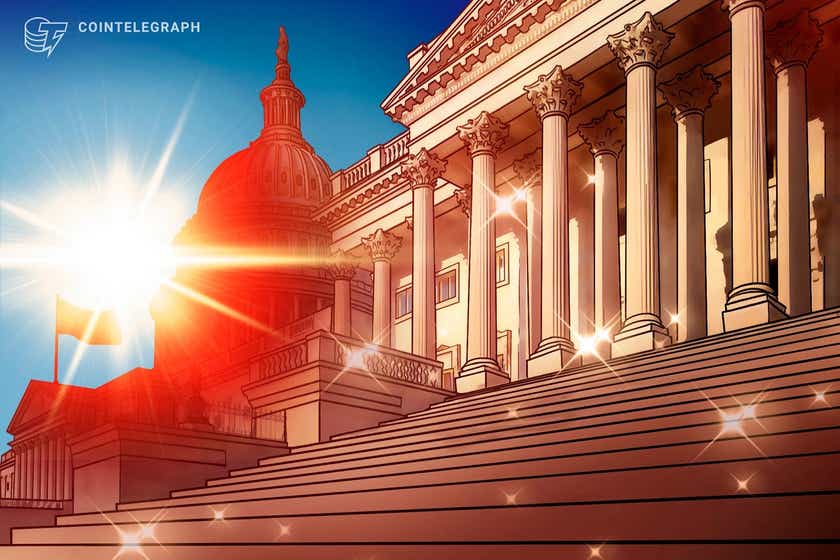Everything gets politicized, including crypto, says former POTUS candidate Andrew Yang
Although cryptocurrency may still be misunderstood on Capitol Hill, crypto is becoming more political as its influence gains traction. For instance, lobbying by those involved in the cryptocurrency industry has reached new heights. A report from the nonprofit consumer advocacy group Public Citizen found that the number of lobbyists for cryptocurrency-related issues rose from 115 in 2018 to 320 in 2021. The report further indicated that the number of representatives within the cryptocurrency industry increased from 47 to 157 during that time period.
The United States midterm elections — set to take place on November 8, 2022 — are further demonstrating the politicization of crypto. This has become evident as a number of crypto holders continue to invest big in political campaigns across the country. For example, Sam Bankman-Fried, CEO of crypto exchange FTX, has helped raise over $14 million for “Protect Our Future,” a political action committee supporting candidates running for seats in the U.S. House of Representatives.
The influence crypto is having on politics was also recently demonstrated at the SkyBridge Alternatives Conference (SALT), which took place in The Bahamas this year. The event, which attracted over 2,000 attendees, featured a number of global leaders during panel discussions, including former U.S. presidential and New York City mayoral candidate Andrew Yang.

Yang conducted a keynote at the SALT conference entitled “How Governments Can Empower the People with Crypto.” Following this discussion, Cointelegraph spoke with Yang about his views on crypto being leveraged for political campaigns and universal basic income (UBI).
Yang also mentioned his plans for the future of crypto in politics, discussing how this ties into his newly formed Forward Party, which aims to unite America’s political parties. For context, Laura Del Savio, senior communications strategist of the Forward Party, told Cointelegraph that the organization is working to reform America’s political system so that incentives don’t push people toward extremes to prevent compromise:
“Other political parties thrive by dividing America. We are bringing them together, and are looking to put political power in the hands of the people. That goal is shared by the crypto community. Blockchain technology makes new governance structures possible, and this will provide stronger representation.”
Cointelegraph: Mr. Yang, can you please explain why crypto is so important for political campaigns today?
Andrew Yang: In America today, everything is getting politicized and crypto is no exception. There are a lot of people in the crypto community that dislike politics or would like to avoid the subject, but I think that more people are realizing this is not an option anymore. If we are going to be interacting with Washington, D.C., then we will want to have effective, intelligent and forward-looking treatment.
I speak with so many people in the crypto sector that are just now becoming more activated politically. The fact is that this community is still maturing in terms of the way it wants to operate politically. Yet, if we want to get the approach right, we have to spend time investing in and educating regulators, lawmakers and the public about the possible benefits and applications of cryptocurrency.
CT: How does cryptocurrency relate with universal basic income?
AY: The cryptocurrency community was one of the first to embrace my presidential campaign, so I’m suggesting that universal basic income can be received in fiat, but also in crypto or a new currency. If our goal is to alleviate poverty, then crypto is an enormously powerful toolkit. That’s the way we should be approaching UBI.
CT: What are your plans for getting crypto regulation pushed forward?
AY: I’m currently working on this with my team at Lobby3, which is a newly formed decentralized autonomous organization (DAO). We have been having productive conversations with people who are interested and, in some cases, skeptical of crypto, but at least everyone is open to learning about it.
I also think that many people involved in crypto are Libertarians or Independents in their political orientation and, therefore, don’t feel like either the Democratic or Republican party is a natural home. This is one reason I’ve started the Forward Party, so I can help activate the millions of Americans who want an alternative to the two-party system. Some of the people who have been most excited about this have been my friends in the crypto sector.
CT: Any additional comments you’d like to share?
AY: Yes, if we want to build the future that we want, we have to become activated and smart in the way others have previously been. If we do this, then I think we are going to be able to accomplish our goals.









